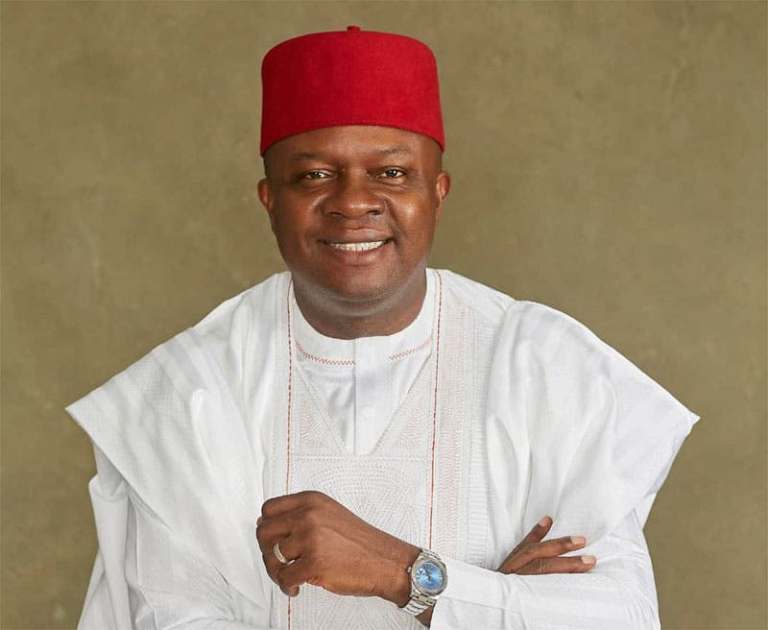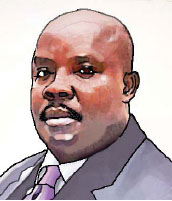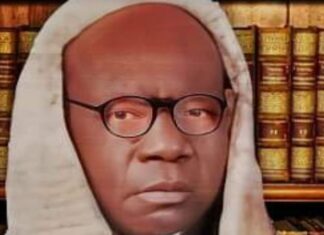By Emeka Alex Duru
(08054103327, nwaukpala@yahoo.com)
There may be points in the saying that Anambra, represents the face of the Igbo. That, perhaps, informs attempts by some to compare what the state means to the Igbo to what Jerusalem stands for a Jew. This is debatable, anyway.
Among the Jews, there is the nostalgia about Jerusalem. Whatever their nationality, they are conscious of their roots in the holy city.
This is why when they propose a toast, they end it with “in Jerusalem next year” – an expression of hope to perform the act in the city in future. Incidentally, many who express this desire may not have been to Jerusalem and may never do in their life time. But the attachment is there.
Among the Igbo, there is to some extent, a similar interest in Anambra. Wherever he may have hailed from, whether Imo, Ebonyi, Abia, Enugu, Rivers, Delta, Benue or even Akwa Ibom, the Igbo is concerned about happenings in Anambra.
Explaining why the essentially internal affairs of the state attract attention of even non-indigenes, has not been easy.
Notwithstanding, Anambra has always provided the barometer for measuring the tempo of activities in the South East.
In the build up to Nigeria’s independence in 1960 for example, some of the prominent personalities from the eastern flank sprang from the present Anambra. They included the late Dr. Nnamdi Azikiwe, Dr. Akwaeke Nwafor-Orizu, both at different times, President of the country and Senate President, respectively. There were also M.C.K Ajuluchukwu, Mbazulike Amaechi (The Boy is good), Igwe Osita Agwuna and others. They, at the time, sustained the fire for Nigeria’s nationalism.
Shortly after independence, when the Nigerian state left no room for the Igbo, the task of charting the path for self-actualisation of the people through the instrumentality of the Peoples Republic of Biafra, fell on General Chukwuemeka Odumegwu-Ojukwu, again form the state. At the height of the civil war, when the federal authorities were looking for an administrator for the East Central State, they settled for late Ukpabi Asika, from Onitsha.
In the Second Republic when the position of Vice President was zoned to the South East by the defunct National Party of Nigeria (NPN), Dr. Alex Ekwueme, from Oko, readily became the choice, while Edwin Ume-Ezeoke, also from the state, emerged the Speaker of the House of Representatives. During General Ibrahim Babangida’s political transition exercise, Agunwa Anaekwe, emerged Speaker of the House of Representatives from the state.
In the current political dispensation, late Dr. Chuba Okadigbo, from Ogbunike, had held the Senate Presidency for the zone at a time. As eminent Igbo representatives have risen in politics from Anambra, so have they in other fields. In the state, as the saying goes, nothing good lacks.
It is therefore not surprising that the November 6 governorship election in the state, is being seen by many as an affair of the entire south east. You will also give it to the average Anambra indigene; he has the courage, character and if you don’t mind, the bravado to get you reason with him or reckon with him.
For such politically active electorate, the November poll, is a big deal, for which they are fronting their best. A look at the flag bearers of the political parties says it all. Some are however outstanding – Valentine Ozigbo of the Peoples Democratic Party (PDP), Prof Charles Soludo of the All Progressives Grand Alliance (APGA), Dr. Obiora Okonkwo of the Zenith Labour Party (ZLP), Andy Uba of the All Progressives Congress (APC) and Senator Ifeanyi Ubah of the Young Progressives Party (YPP). They all have their weights and substances. None is a push-over, in terms of exposure and accomplishments.
However, former governor of the state, Dr. Chukwuemeka Ezeife was right, the other day, in narrowing his preference to Soludo and Ozigbo, describing the former as the most qualified, perhaps in academic terms; and Ozigbo, as the best prepared for the office.

Having the qualification for a post is a good step but spicing it with adequate preparation for the job, makes the difference. Ozigbo, a 2003-2004 British Chevening Scholar, has both in quantum. His profound understanding of dynamics of government and the economy of the state, makes him the candidate to watch. He also has no credibility crisis.
He has professional qualifications in Accounting which he obtained in 1998; Taxation, earned in 2000 and Credit Administration which he bagged in 2015.
He studied Accounting at the University of Nigeria, Nsukka picking the best result in both Accounting and Business Administration, in 1994. He obtained his MBA in Banking and Finance from the same University in 2000 and an MSc in finance with distinction from the Lancaster University, United Kingdom in 2004.
With a remarkable career in the banking sector that spanned over 17 years with NAL Merchant Bank, Diamond Bank, Continental Trust Bank, FSB International Bank, Standard Trust Bank, United Bank for Africa and Bank PHB, Ozigbo has commensurate experience in human and resource management.
His last outing as Managing Director and Chief Executive Officer of Transcorp Hotels Plc., speaks on his capabilities in attending to higher responsibilities. In this role, he provided strategic direction and drove the execution of key strategic goals of the company and its projects under management which included business expansion, merger and acquisition opportunities, business improvements, upgrade and renovations.
Ozigbo believes in continuity, a point he stressed in an interview with a leading online medium, TheNiche Newspapers, recently. He said, “One of the philosophies I hold dear which is actually a recipe for our solution is building a culture of continuous improvement. No matter whatever thing we are doing in the world, there is always a better way of doing it”.
He also spoke on the reason for his aspiration, anchoring it on the desire to register his contribution in the development of the society. “I want to use Anambra as an example of what a Black can do to govern ourselves, change our story and have a state we can be proud of. That’s my motivation”, he said.
In his manifesto, tagged Project Chawapu, Ozigbo provides insight into his agenda to revitalize the state’s economy, through deliberate, strategic partnerships, in order to grow employment and productivity, increase internally generated revenue, and ultimately boost the ability of the government to spend on the things that matter to the citizens.
He also pledges humble, down to earth leadership that will build the enabling environment for entrepreneurship to thrive in Anambra. A cornerstone of Project Chawapu is the spending on critical infrastructure that is necessary to boost the productivity of the state. This is instructive.













